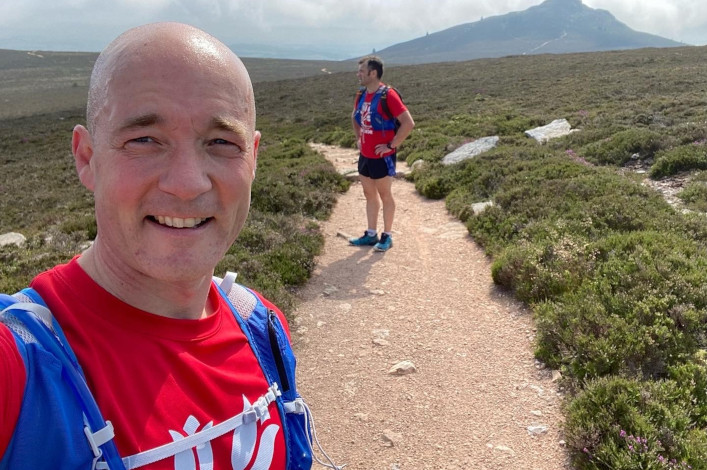Running through Ramadan: How to maintain a fitness routine
Friday 28 February 2025

With Ramadan expected to begin this evening (28 February), we caught up with Sana Faqir from Let’s Go Linlithgow, who shared her experiences and tips for keeping active during this time.
~~~
For Muslims, Ramadan is a time to slow down and focus on spiritual well-being. For years, this also meant pressing pause on any form of structured exercise for me. The idea of stepping into the gym or even going for a walk while fasting just didn’t seem practical. The thought of ending up thirsty or exhausted with hours left until Iftar felt too risky.
But taking a full month off from physical activity came with its own challenges. My fitness levels regressed significantly, and getting back into a routine post-Ramadan was a struggle. Over time, I’ve come to realise that Ramadan doesn’t have to mean abandoning fitness altogether. Instead, it’s about training smarter, listening to my body, and making small adjustments that allow me to stay active while fasting.
Planning ahead: The key to staying active
Ramadan 2025 is expected to begin on the evening of Friday 28 February, and conclude on Sunday 30 March. In Scotland, fasting hours will start at around 12 hours and 47 minutes, increasing to approximately 14 hours and 43 minutes by the end of the month. For me, the key to maintaining a fitness routine during this time is planning ahead.
If you have a specific medical condition, it’s important to consult your doctor before making any training plan for Ramadan.
Identifying the best training times
Choosing the right time to exercise is crucial for maintaining energy levels and hydration. Here’s what works for me:
Before Suhoor (Pre-Dawn Meal): I find this is a great time for low-intensity exercises like stretching or yoga. When I lived in Dubai, I also went for early morning walks, but with Scotland’s icy conditions, I won’t be taking that risk!
After Iftar (Breaking Fast): I find post-Iftar workouts are better for more intensive training since the body has been replenished. If I train after Iftar, I prefer breaking my fast with a small, light meal before exercising and having a larger meal afterward.
During Fasting Hours: Some people like to train an hour before Iftar, as they can rehydrate and refuel soon after. Personally, I feel stronger earlier in the day. If you try this, be mindful that you won’t be able to eat or drink for several hours afterwards, so don’t push yourself too hard. Also, a post-jog nap is a non-negotiable for me!
Planning meals for energy and recovery
A well-balanced diet during non-fasting hours supports energy levels and recovery. For Suhoor (pre-dawn meal) I usually select complex carbohydrates like oats or whole grains for sustained energy, alongside protein (e.g. eggs or yogurt) for muscle maintenance and hydrating foods like watermelon to aid hydration.
For Iftar (evening meal) I prefer starting with dates and water – it’s Sunnah (recommended by the Prophet Muhammad peace be upon him) and helps restore energy quickly. I follow this with a balanced meal including proteins (chicken, fish), carbohydrates (rice, pasta), and vegetables. Ramadan is not the time to cut carbs!
If I plan to train post-Iftar, I keep my meal light beforehand (maybe a soup) and have a larger meal afterwards.
Staying hydrated
One of the biggest challenges of fasting during Ramadan is the lack of water. To avoid dehydration, I drink plenty of fluids between Iftar and Suhoor. I find that sipping water frequently, rather than drinking large amounts at once, helps with absorption.
Foods and drinks rich in electrolytes can also help prevent dehydration, muscle cramps, and fatigue. Some of my go-to options include coconut water, bananas, dates, yogurt, electrolyte drinks and leafy greens.
Listening to my body
This is my number one rule during Ramadan. If I feel weak or dehydrated, I adjust my training (maybe a walk instead of jogging) or take a guilt-free rest day.
I’ve learned that Ramadan and fitness don’t have to be at odds. It’s not about pushing myself to the limit but about adapting and staying in tune with my body.


Latest Facebook update
Problem displaying Facebook posts. Backup cache in use.
Click to show error